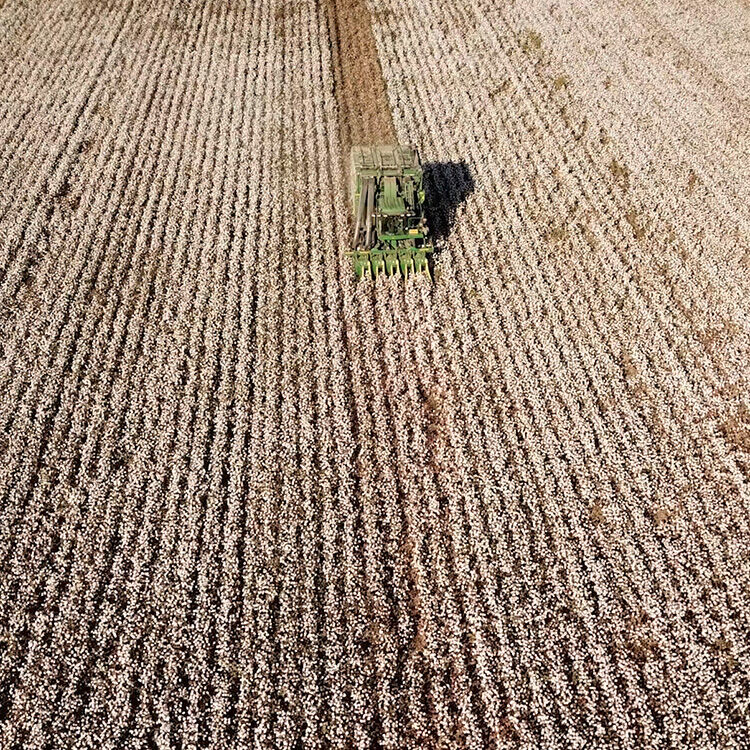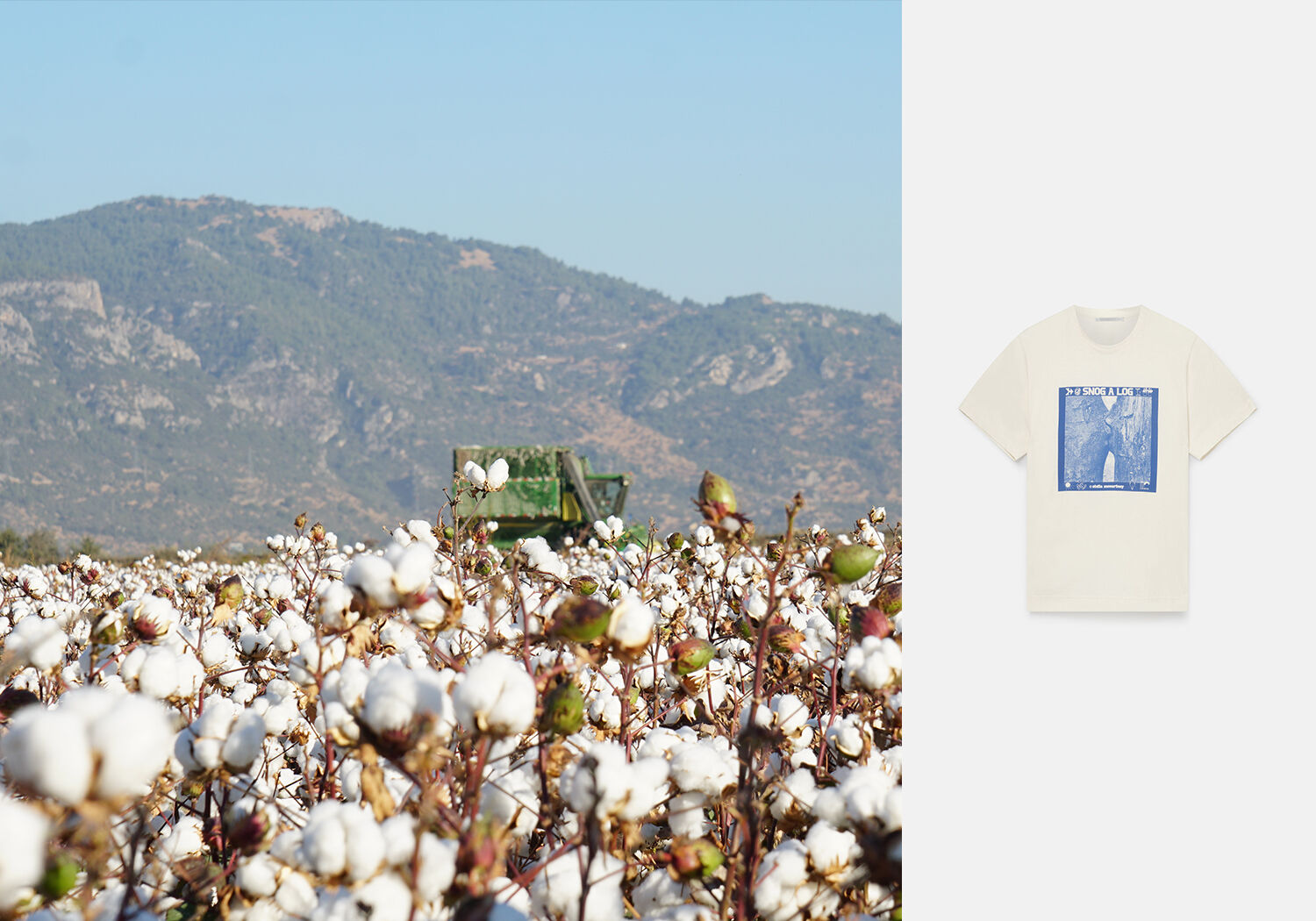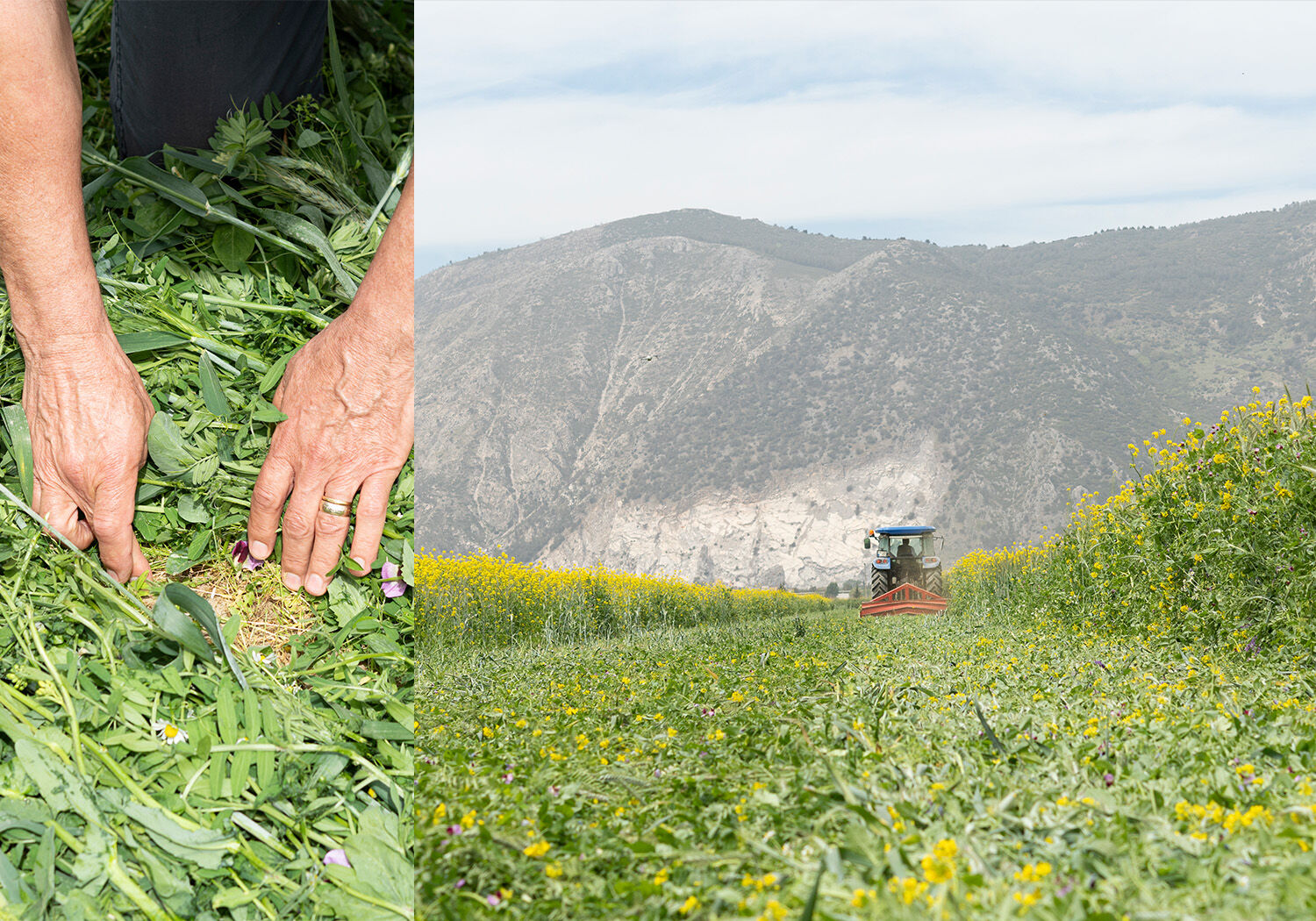Traceability and Blockchain Technology
As a progressive luxury brand, Stella McCartney has always looked to the future. Committed to being responsible, honest and accountable, we aim to increase our transparency across supply chains, achieving this through diligent reporting, measuring and tracking. And now, we are proud to partner with UNECE on a blockchain technology pilot to further this goal. All of these insights help us to drive innovation and make better, more sustainable decisions in everything we do. After all, what we can’t see, we can’t know.
What is blockchain technology?
Blockchain is the term used for technology that ‘permanently records transactions in a digital, tamper-proof database’ (Business of Fashion). It is captured and shared across a network, rather than a single entity, accessible by anybody in the network. In the fashion industry, blockchain technology allows companies to trace all factors of a product’s supply chain. It connects brands, retailers and suppliers, forming a decentralised database.
Known as ‘transparency evidence’, the UNECE blockchain platform provides documentary proof of the production practices involved through certifications and standards. The platform also requires the authorisation of the respective standard-setting bodies (i.e. OEKO-TEX®, Better Cotton Initiative) to validate these certifications and standards, avoiding fraud and false information.
Stella McCartney × UNECE blockchain technology pilot
As a progressive luxury brand, Stella McCartney has always looked to the future. That is why, since September 2022, we have been working alongside UNECE and our regenerative cotton supplier SÖKTAS to trace a garment throughout its supply chain through documentary evidence.
This UNECE blockchain technology pilot is part of our ‘The Sustainability Pledge’ initiative, exploring the use of innovative technologies – like satellite imagery and environmental DNA – to substantiate the supplier’s sustainability credentials, including no tillage, crop rotation, biodiversity monitoring and carbon capture rate measuring methods. Our Snog-a-Log Regenerative Cotton T-Shirt is at the centre of this pilot: the platform allows us to capture all factors from the garment’s value chain.
Regenerative sourcing is not only the future of fashion, but of our planet. If we ever hope to protect and restore nature, we cannot continue to just take from Mother Earth – we also have to give back. By implementing UNECE blockchain traceability technology into our regenerative cotton supply chain, we are proud to pioneer and transparent path forwards and hope that other fashion houses will join us.
What were the findings from the SÖKTAS pilot?
- Our blockchain pilot with SÖKTAS aimed to prove that the Snog-a-Log Regenerative Cotton T-Shirt has been produced using regenerative cotton, which:
- Supports biodiversity preservation
- Increases ecosystem resilience
- Promotes and utilises the safe use of chemicals in compliance with STANDARD 100 by OEKO-TEX® and the ZDHC programme.
- The initial findings and carbon sequestration measurements from our SÖKTAS pilot showed that SÖKTAS agricultural practices and its regenerative cotton had an average carbon capture of 18.94 tonnes co2 (eq)/ha/year placed in the top 45cm of the soil profile
- These results indicate the potential to improve access to trustworthy information on compliance with regulatory requirements for ESG standards throughout the product’s value chain. We believe it can also increase purchasers’ trust in brands’ sustainability claims.
Continuing to use blockchain technology for traceability
Following the success of our UNECE blockchain pilot with SÖKTAS, we are excited to share that we are launching a second-use case for a knitted shirt – also crafted from regenerative cotton and partnering with SÖKTAS. We are additionally partnering with another supplier to trace the supply chain of our wool.
This pilot showcases the importance of collaborative business models and reliable information for moving companies from commitment to action. With the engagement of leading brands and their suppliers and farmers, we hope this platform will accelerate the responsible transition towards a circular economy.





